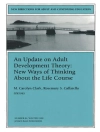This book shares exemplary teaching and learning practices from the tertiary sector, and addresses important issues concerning quality, scholarship and innovation in teaching and learning in tertiary settings. It takes on classic issues regarding curricula, technologies and assessment, but approaches them from novel perspectives and using a variety of methodological approaches. Its chapters explore innovative and cutting-edge ideas in tertiary education. Readers will be both challenged and inspired to investigate the ideas discussed further.
Tabla de materias
Part I Reconstructing the Digital Learning Environment.- 1 Reconstructing the Digital Learning Environment.- 2 Embedding Media Richness in Online Assessment Feedback: Effects of Multimedia Delivery and Paralinguistic Digital Cues on Social Presence and Student Engagement.- 3 Disruptive Authentic Assessments: Engaging Business Students in
Flow Experience with Digital Technologies.- 4 Successful Factors for Adoption of Synchronous Tools in Online Teaching at Scale.- Part II Shifting the Curriculum.- 5 Shifting the Curriculum.- 6 From Small Things: Building Cross Disciplinary, Transformative Learning Experiences through a Global Mobility for Higher Education Students.- 7 Using an Applied Curriculum Project Connect Theory and Practice in Teacher Education.- 8 Exploratory Variations in Course Structure Consistency Within the Learning Management System.- 9 Enabling Holistic Curriculum Transformation by Using ‘Thoughtfully’ Designed Blended Activities and Resources.- Part III Reflections on Change.- 10 Reflections on Change.- 11 Speaking Together: Reflections on Reconciliation, Yarning Circles and Signature Pedagogies.- 12 My First Six Months: Students’ Perceptions of Learner-Centred Design Studios.- Part IV Preparing for the World of Work.- 13 Preparing for the World of Work.- 14 Graduates: The Future of Work, Soft Skills, and the Increasing Important of Careers Education at RMIT University.- 15 External Competitions and Work Integrated Learning: A Creative Industries Perspective from Vietnam.- 16 Future System Lab: A Landscape Architectural Teaching Model to Enable the Development of Practices that can Thrive in Times of Disruption.- Part V Beyond Disruption.- 17 Beyond Disruption.
Sobre el autor
Tricia Mc Laughlin is a nationally recognized scholar in the area of lifelong learning and pathways. She has extensive experience in the development of lifelong learning principles and their application in workplaces, educational settings and schools. Her most recent project work (2017-2018) involved conducting and evaluating PL sessions for science, technology, engineering, and mathematics (STEM) teachers in primary and secondary schools in the northern region of Victoria. Tricia is an active researcher, and the primary focus of her work has been on learning and teaching models and approaches to learning, particularly in connection with science, technology, engineering, and mathematics. Tricia has authored or edited 5 books and numerous publications on learning and teaching.
Andrea Chester is currently the Dean, School of Education as well as Deputy Pro Vice-Chancellor of Learning & Teaching at the College of Design and Social Context at RMIT University. An accomplished senior academic and executive with more than 20 years’ experience in tertiary education, Andrea has led learning and teaching innovation at the local and national levels. She has implemented models of professional learning with impact across the tertiary sector. She has particular expertise in the development of partnerships to enhance learning, with experience in co-design and mentoring models. Andrea is a member of the Australian Council of Deans of Education and has been recognized nationally for her teaching excellence. She is the author of more than 100 publications, reports and conference papers.
Belinda Kennedy is an academic at the School of Education and the College of Science, Engineering and Health. Belinda has broad expertise in tertiary education and science, technology, engineering, and mathematics (STEM) disciplines. In her particular discipline of Science, she has initiated a number of innovations in both on andoff campus learning across diverse cohorts. She has co-authored a number of publications on best practice learning and teaching and is involved in a number of scholarship initiatives at RMIT.
Sherman Young is currently the Associate DVC of Education at RMIT. An accomplished senior academic and executive with more than 20 years’ experience in tertiary education, he is currently responsible for the effective development and renewal of policy in the learning and teaching area, the enhancement of curriculum design and delivery, and the effective use of online technologies to achieve the university’s goals. Sherman also leads RMIT Studios, a group providing thought leadership in learning and teaching practice, program quality, learning analytics and best-practice online, digital and advanced learning systems for RMIT.












